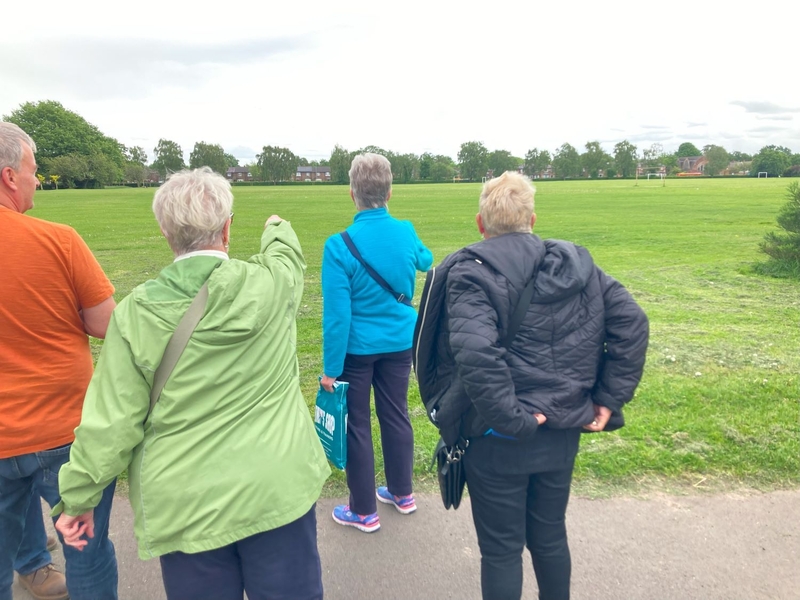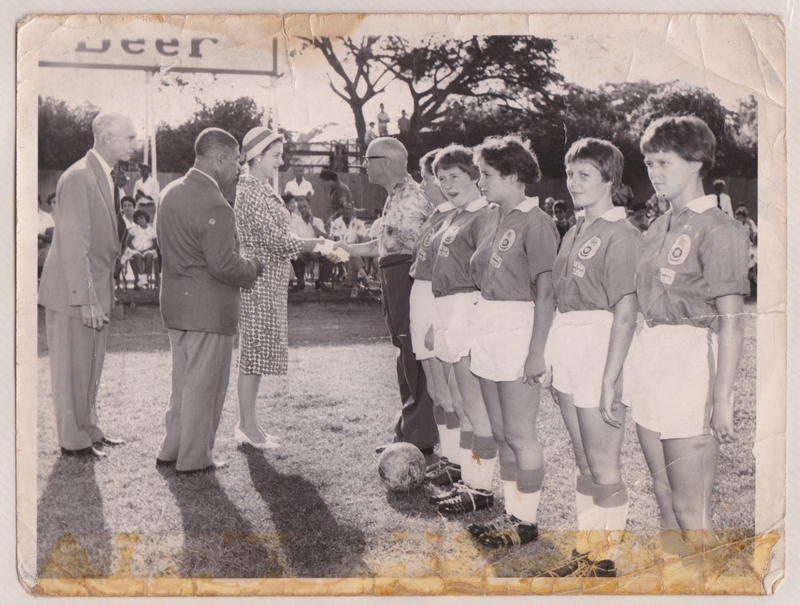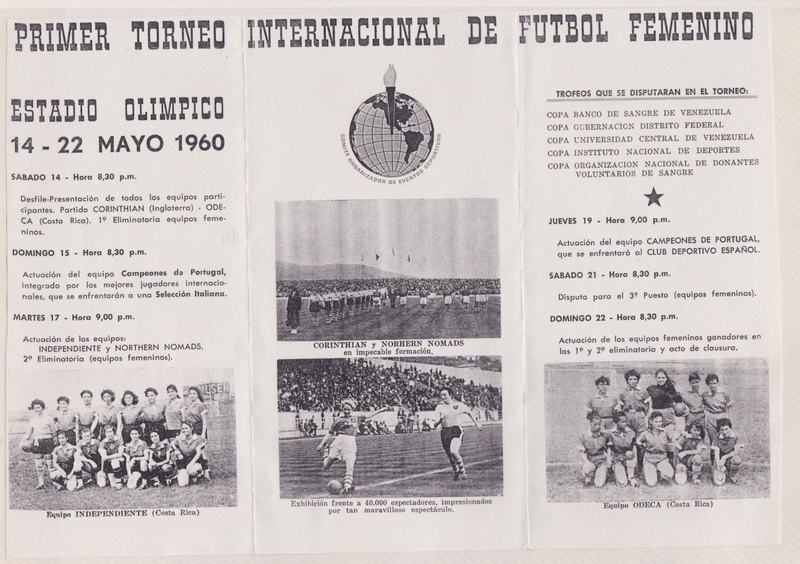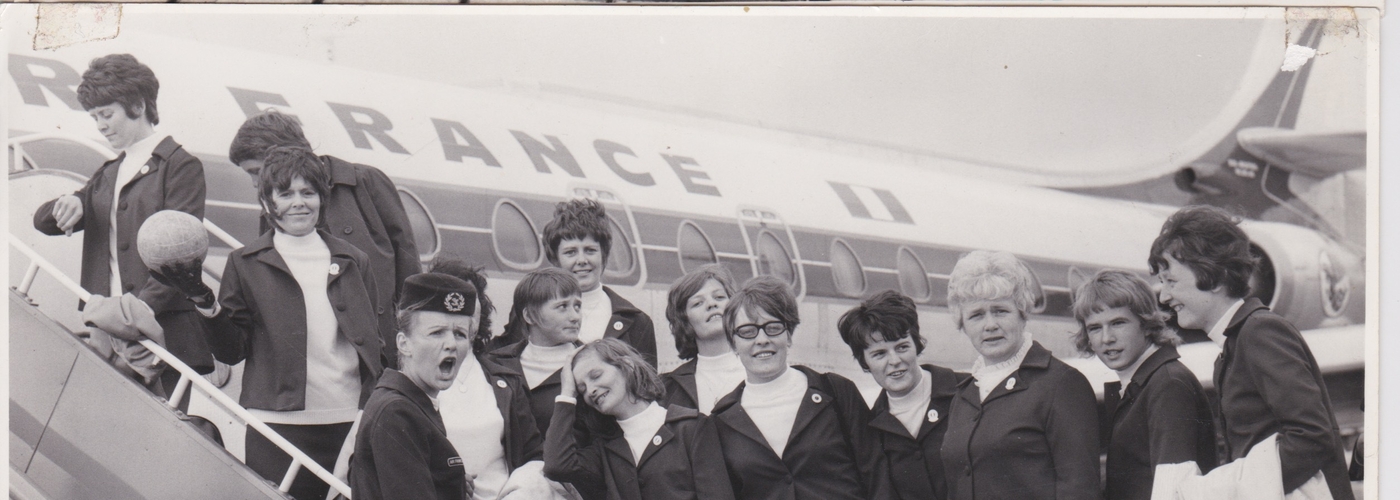Gary James on a remarkable team and the remarkable journey to have them recognised
For several years now I’ve been campaigning to have a plaque erected to recognise the achievements of the pioneering women’s team Manchester Corinthians. I’m delighted to say we’ve not only reached our target but other tributes are now being erected to the women who toured the globe promoting football, female endeavour and Manchester.
The official unveiling will be at Fog Lane Park, their original home, on Friday 6 October at noon. Several of the women who played will be there but I’m still keen to track down others who played for the Corinthians between 1949 and the early 1980s, before the club became Woodley Ladies. If you, your mum, sister or granny played for the club then please encourage them to get in touch with me by emailing gary@GJFootballArchive.com
So, who were the Corinthians?
“We stayed in all the best hotels and it was quite glamourous. There were lots of scrapes along the way.
The Manchester Corinthians were a team of local women who were brought together under the management of Percy Ashley at a time when the FA banned women from playing on FA affiliated grounds. The FA also banned any man involved with FA affiliated clubs from becoming involved with women’s football.
Established in 1949, Ashley’s team toured the world promoting the sport and demonstrating what a dedicated group of players the club possessed. Many of the Corinthians are now in their seventies, eighties and nineties but some of them still get together from time to time to talk of their exploits.
Four years ago I managed to arrange with Manchester City for some of the women who played for the Corinthians to be guests of the club at a women’s game at the Academy Stadium. It was there that the idea of erecting a plaque was first discussed. Then in 2021 at an event in Hebden Bridge where a few of the Corinthians were interviewed I publicly announced the intention of erecting a plaque. The audience were keen to help and support from Manchester City Council followed.

After that I was introduced to the Friends of Fog Lane Park, under whose name we officially launched the appeal as we wanted the plaque to be erected at the park where the club first played. In addition, I contacted the Football Association and various other bodies searching for funding. The FA donated enough money to erect a plaque and create other tributes, while the wider appeal raised other funds. Manchester Council also provided a significant donation to the Friends of Fog Lane Park too.
The money raised has meant that we are not simply erecting a plaque but also two murals of the women, painted by artist Gavin Renshaw, will now be proud reminders of what they achieved. There will also be a display lectern providing an overview of their story.
Over the years I’ve interviewed many of the women involved, including only last week a nonagenarian who began playing for the club at its formation in 1949. She talked of her desire to play football and how she loved the team spirit at a time when Society tried to tell women they couldn’t play and the FA ban was still in force.

Another, Margaret Hilton, who now lives in Australia, told me her memories of a ground-breaking tour in 1957: “Bert Trautmann, the City’ keeper, joined us on a tour of Germany. He acted as an ambassador and watched some of our games. We saw him around but I was too shy to chat to him. It was great having that recognition and support.”
Corinthians, representing England, won a major competition in Germany which was, at the time, regarded as a women’s European Cup – these were the early days of cross-continent football and UEFA were not involved with organising competitions for the women’s game. Further trips abroad followed. 50,000 watched them in a game at Benfica and then in 1960 the Corinthians ventured outside of Europe for a tour of South America. It was supposed to be a six-week tour but such was the popularity of the games that the women were asked to stay for three months.
Margaret ‘Whitty’ Whitworth told me: “We stayed in all the best hotels and it was quite glamourous. There were lots of scrapes along the way. We were young women and loved every minute of it. We didn’t care about the FA ban, we just got on and played.”
Whitty had joined the club as an eleven-year-old in 1958 and was fourteen when she travelled to South America. Her parents had to give permission but some of the women also gave up their jobs for the opportunity of representing Manchester – and England – on the tour. Whitty: “What a great experience for us all! The stadiums… the reception from the crowd… it was all incredible but we all just took it in our stride. It’s only afterwards that you look back and realise how significant it all was.”
In South America in 1960 the club won a tournament that was perceived as a World Cup at the time. As with the European success a couple of years earlier this occurred at a time when the game’s governing bodies did not organise competitions for women and so these tournaments often get forgotten or dismissed. That’s wrong, because in Venezuela the women played in front of significant crowds, often described as approaching 60,000.

Percy Ashley developed various additional teams over the years with one carrying the name Dynamo Ladies in 1950 and then came the Nomads in 1957. The Corinthians would play against the Dynamo Ladies (and later the Nomads) regularly, raising money for charity. The Dynamo team were managed by a former Corinthians player Alma Nixon by 1953.
The Corinthians won a host of tournaments and trophies over the years and in 1970 Whitty was player of the tournament when they found trophy success at Reims in France. Margaret Shepherd, nicknamed ‘Tiny’ due to her height (she was a tall central defender), remembers the excitement of that trip and the celebrations that followed the victory over Juventus in the final: "It was a great experience and the celebrations were so special."
The experience of playing against leading European teams was to have a major impact on the lives of the women. In fact, Jan Lyons, decided to move to Italy to spend more time playing football and ended up playing for Juventus for two seasons in the Italian women’s league of the period. A league that was way ahead of anything in England.
Manchester Corinthians survived into the modern era and continued to play once the FA ban was lifted – a ban they had challenged. The club was still going strong in 1982 but, due to ground changes and related issues it soon officially changed its name to Woodley Ladies, though was often still known as Corinthians. Some of the 1980s team members became players with Manchester City’s women’s team in its inaugural season of 1988-89. By that time the volume of women’s clubs, leagues and competitions had grown significantly.
A club was established carrying the Corinthians’ name by a former player for a period in the late 1980s, playing in Tameside, but it was during the period between 1949 to 1982 that the Corinthians were true pioneers with continuity through the decades. They promoted the sport globally at a time when many refused to accept that women could play football.
If you know any former players from the period before 1982 then please get in touch with their details.
Why not come along on Friday 6 October at noon to the official unveiling and acknowledge the contribution these pioneering Manchester women made?
More on the Corinthians at:
About the writer
Gary James is a Mancunian football historian and writer in Greater Manchester. He contributes a monthly column focusing on the clubs in the Greater Manchester area. He’ll be mixing modern-day situations while bringing in context.
If you liked this you might like:
City's massive expansion plans
Strange city: the French woman sings about forlorn walls
The Champions League Final: UEFA’s Dis-organisation
Get the latest news to your inbox
Get the latest food & drink news and exclusive offers by email by signing up to our mailing list. This is one of the ways that Confidentials remains free to our readers and by signing up you help support our high quality, impartial and knowledgable writers. Thank you!














